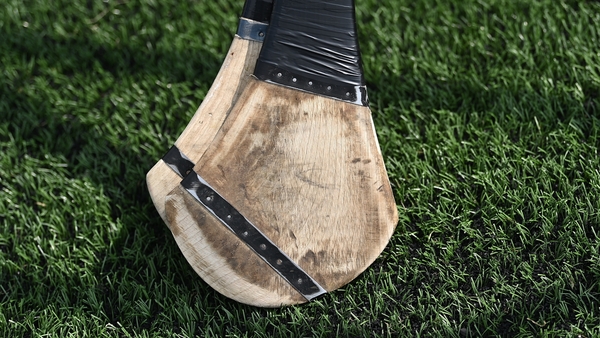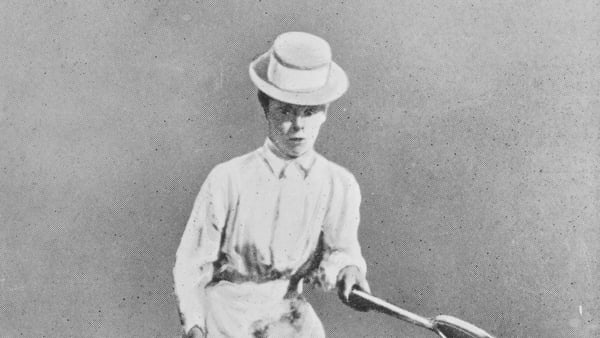Analysis: Altering words in some way to conceal their meaning to those outside the group is typical of jargons the world over
This article is now available above as a Brainstorm podcast. You can subscribe to the Brainstorm podcast via Apple Podcasts, Spotify, Stitcher or wherever you get your podcasts.
If you’ve ever grabbed a ‘naggin’ of something in the shop, then you might know that it’s a word derived from noggin, a measure of spirits, which in turn might have come from the Irish word ‘naigín’, meaning a small wooden pail. The sun's been absolutely splittin' the stones, a phrase that comes from the Irish 'á an ghrian ag scoilteadh na gcloch’. You dig? Another slang phrase that may - or, more likely, may not - have been adopted and adapted from the Irish ‘tuig’, to understand.
Slang is a funny thing. In English, the word itself, according to the Oxford English Dictionary, comes from the mid-18th century and is of unknown origin. Slang is informal language, usually spoken, and often particular to a group of people. It can be based on new or existing words, but used in a specific context that gives it meaning. In a sense, anything is liable to become slang. It's something that "exists in every language and in every group of speakers," says Dr Ken Ó Donnchú, lecturer in the Department of Modern Irish at UCC.
In Irish, slang is called "caint na sráide", talk of the street. While the development of slang might happen "unconsciously" in other languages, Ó Donnchú says that it doesn't necessarily happen the same way in Irish. Part of it might be to do with the influence of English, he says. "Everybody who speaks Irish is bilingual now. In the last two generations at least, you don't have any monolingual speakers - people who have no knowledge of English or no confidence in English - that's gone. So anyone who's fluent in Irish, even as their first language, they develop fluency in English in their formative years."
We need your consent to load this rte-player contentWe use rte-player to manage extra content that can set cookies on your device and collect data about your activity. Please review their details and accept them to load the content.Manage Preferences
From RTÉ Archives, Sharon Ní Bheoláin reports for RTÉ News in 2004 on the future of Irish
Which might be why we have a phrase like "éasca péasca" in Irish, borrowed from the English "easy peasy". "Undeniably, you get an amount of interference from English, or English words creep in, and that's natural, obviously, to mix languages. But I think that has, however greater or lesser, an influence on the development of slang in Irish," he says.
There are two interesting precedents for slang or jargon in Irish literary history, explains Ó Donnchú: Bérla na filed and Béarlagair na Saor. Bérla — or Béarla — na filed, literally translated 'language of the poets' — was a type of poetic jargon, "which used a mixture of arcane words, primarily, as well as more common words used in unusual senses. Apparently, it was part of the course of study of an aspiring professional poet in the Middle Ages to learn this type of jargon."
Béarlagair na Saor, meanwhile, literally translated means ‘the jargon of the stonemasons’. "Apparently this was still in use by stonemasons in Ireland up until recent decades," he says. "Its vocabulary was based to a large extent (half at least of the surviving corpus) on Irish words, both living and obsolete, as well as inverted or otherwise modified (e.g. by addition of an extra syllable) Irish words."
From Clisare, Irish and international slang terms translated into the Irish language
Altering words in some shape to conceal their meaning to those 'outside the group' is typical of jargons the world over, adds Ó Donnchú. When it comes to Irish slang, there are some words as Gaeilge that are used and pronounced almost identically in English as they would be in Irish:
Cábóg
In its English use, used to imply an unsophisticated/rustic person.
Mo léir!
When used in English it's more an expression of incredulity than 'alas’ etc., but it can mean the latter as well.
Ráiméis
Meaning nonsensical talk, rigmarole.
Slog
Meaning a gulp of a drink. Its spelling in English [slug] is a perfect reflection of the Irish pronunciation, says Ó Donnchú.
We need your consent to load this YouTube contentWe use YouTube to manage extra content that can set cookies on your device and collect data about your activity. Please review their details and accept them to load the content.Manage Preferences
Other words are used as slang and sound close to their original Irish pronunciation, like ‘tasp(e)y’ - a Cork slang word. This is a localised word in English, Ó Donnchú says — "I’ve only ever heard it in Cork, but it could be more widespread,"— it comes from the slightly different sounding 'teaspach' in Irish and implies (over)exuberance etc.
Language constantly evolves and the Irish language is no exception. Dr Seán Mac Risteaird, researcher in DCU's Fiontar & Scoil na Gaeilge, highlights An Foclóir Aiteach (The Queer Dictionary), launched in recent years by the Union of Students in Ireland, BelonG To Youth Services and the Transgender Equality Network of Ireland. It includes words like bunadóir (bottom), barradóir (top), ileadóir (switch) and teacht amach (coming out).
Mac Risteaird also highlights a series of videos from Bloc at TG4 on Irish slang from different regions and Ghaelteachts.
We need your consent to load this YouTube contentWe use YouTube to manage extra content that can set cookies on your device and collect data about your activity. Please review their details and accept them to load the content.Manage Preferences
You might learn words like:
Poncánach (Munster)
A yank, yankee (an American).
Fáinleog (Munster)
Technically, this is the Irish for a swallow bird, but is used in Munster to mean a "blow-in".
We need your consent to load this YouTube contentWe use YouTube to manage extra content that can set cookies on your device and collect data about your activity. Please review their details and accept them to load the content.Manage Preferences
Damanta (Ulster)
A lost soul, someone "wicked".
Na stealladh (Ulster)
A jokey way of saying you were hammered or drunk.
Tabhair stocaí dó (Dublin)
To give it socks, to give it your all.
Ag Snámh (Dublin)
It means "swimming", but it's not the word to use when you inevitably go "sea swimming" this summer. You might ask your friend if they want to 'swim' down to the pub with you. A dawdle.
The views expressed here are those of the author and do not represent or reflect the views of RTÉ.





